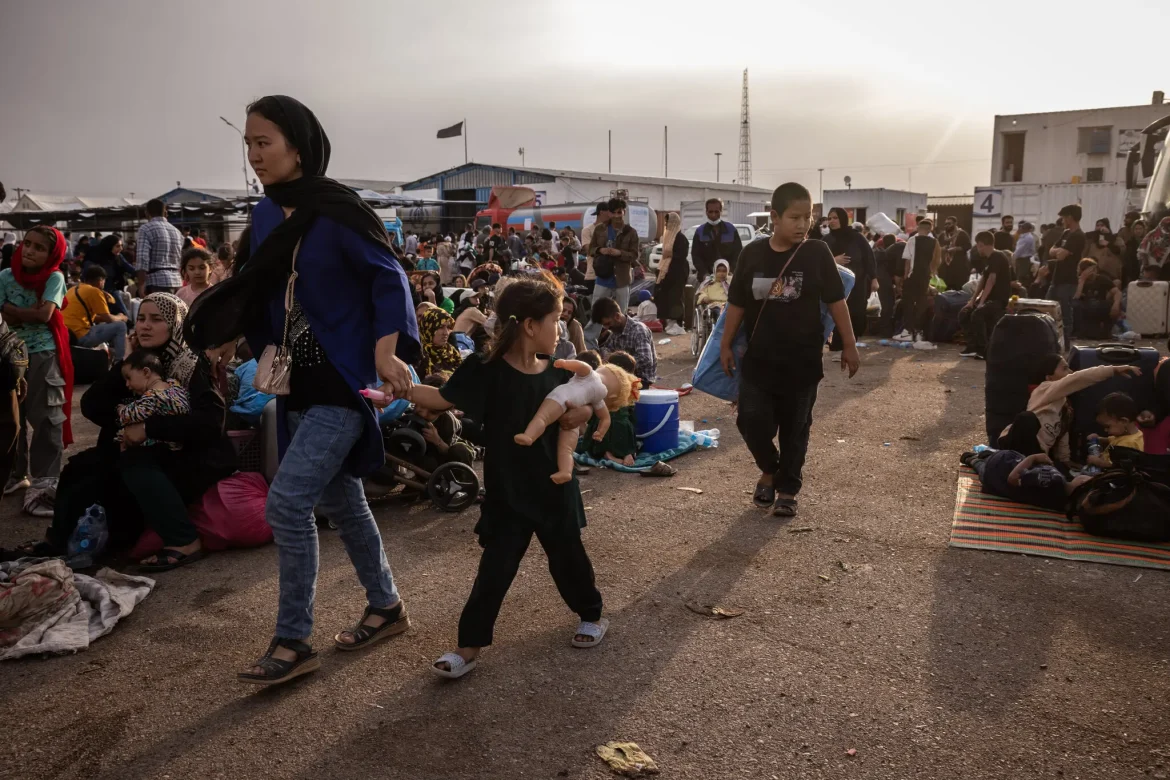Under the scorching July sun at Afghanistan’s Islam Qala border, 17-year-old Khorshid stepped onto her homeland’s soil wearing tattered jeans and sneakers—a last remnant of her life in Iran.
Within moments, Taliban enforcers barked orders demanding full-body covering. “I like myself as I am,” she protested defiantly, but the regime’s brutal reality swiftly crushed her resistance. Turning to her sisters Mahra (18) and Beheshte (19), she whispered: “Afghanistan is a cage for women. We’re being forced back into that cage.” Her words echo a devastating humanitarian tragedy: the forced return of over 1.9 million Afghans from Iran and Pakistan in 2025—the largest mass deportation since the Taliban’s takeover, condemned by the UN as a gross human rights violation.
This exodus stems from state policies that saw Iran expel 1.5 million Afghans since January 2025, including 410,000 people forcibly deported in just 16 days following Iran’s June conflict with Israel. For women like Khorshid, return means surrendering to a system that erases their fundamental rights: girls over 12 are banned from education, universities remain shuttered to women, and employment in both public and private sectors is forbidden. Daily movement is policed by gender apartheid—women cannot travel beyond 48 miles or enter parks without male guardians.
Somaya Jamshidi, a 24-year-old weeks away from graduating in Political Science in Iran, embodies this crushing despair: “The wall around all our dreams collapsed. I was planning my career—now I’m trapped.” Returnees face financial ruin after Iran froze Afghan bank accounts, wiping out life savings while Afghanistan grapples with 23.7 million people needing urgent aid, collapsed healthcare systems, and a $1.03 billion freeze in U.S. assistance.
A stark paradox unfolds along the borders. At Dogharoon crossing—hailed by Iranian officials as an “economic hub”—over 1,000 trucks daily fuel $3 billion in annual trade. Yet just miles away at Milak border, 800,000 deported Afghans queue in dust with scant belongings, relying on locals handing out water and first aid. “It’s the least we can do,” says volunteer Qodous Khatabi. The Taliban’s double standard deepens the crisis: their foreign minister expands trade with Iran while their troops block returnees at checkpoints.
As Iran accelerates construction of hundreds of miles of border walls and Pakistan mirrors deportation policies, the UN warns these actions violate international non-refoulement principles, noting Taliban policies may constitute gender-based crimes against humanity. In this maelstrom of abandonment, survival hinges on whether the world will hear the cries of Afghan women from within their cage.
New York Times


